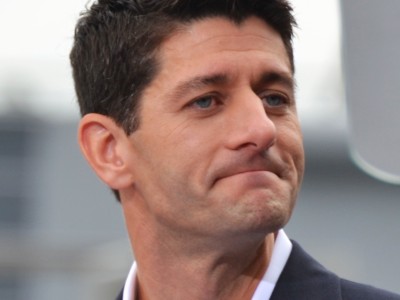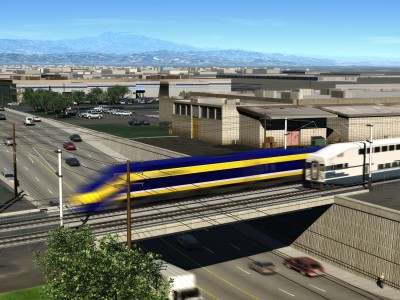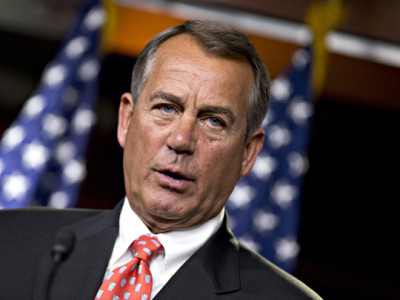Hydrogen “Fool” Cells Vs. Electric Vehicles
The debate over the best clean vehicle technology
California recently committed to spending $50 million on 28 public hydrogen fuel cell charging stations, throwing gasoline (bad pun) on the fire of a growing debate: electric vehicles vs, hydrogen fuel cells as the carbon-free vehicle technology of the future. California policy makers seem to think it may be both, based on their spending to support the two technologies. But the evidence to date suggests that hydrogen fuel cells, which automakers like Toyota are co...
CONTINUE READINGBack in the Fast Lane
New Pritzker Brief from UCLA Law on Making Public Transit Work
Fellow blogger Ethan Elkind has spent a lot of time researching the history, politics, and future of transit in California. Earlier this year he published Railtown, a fascinating portrait of the fight over development of the L.A. Metro rail system, revealing the degree to which that development has been driven by good old-fashioned politics and even intrigue -- think of it as Chinatown but for rail, not water. He has also written on the topics of high speed rail an...
CONTINUE READINGMining for Votes In Coal States: Paul Ryan On Climate Change
Whatever you think of his budget proposals, his climate views are irresponsible.
For years, Paul Krugman has been decrying Paul Ryan's reputation as a reputable analyst of budget issues. That's not my area of expertise, and I'm agnostic on that issue. But Ryan's views about climate change don't bespeak serious thought about the issues. The Christian Science Monitor reports that last Ryan spoke about climate change in a speech in West Virginia: “The president is issuing executive orders and regulations that exceed the parameters of the statu...
CONTINUE READINGGuest Blogger John Nagle: The Clean Air Act Applies to Greenhouse Gases Because of What Congress Said, Not Because of What Congress Intended
A Reply to Megan Herzog
In my recent CNN op-ed and in her previous post, Megan Herzog and I agree that the Supreme Court has properly interpreted the Clean Air Act (CAA) to apply to the emission of greenhouse gases. We just disagree about the correct manner in which to reach that conclusion. Judges and scholars generally favor an originalist approach to statutory interpretation, but they view the precise interpretive question in two different ways. One approach is to ask what Congress intend...
CONTINUE READINGOnly You
Happy birthday to the federal government’s most recognizable environmental advocate
The U.S. Forest Service is a key actor in a lot of environmental and land use policy decisions. It oversees the national forests and handles various research and conservation efforts. The Service is a common defendant in environmental suits, often as a result of its substantial permitting duties. But what USFS is best known for is this guy: Smokey Bear debuted as a character on August 9, 1944 (or slightly earlier), making him 70 years old this week. In the spirit ...
CONTINUE READINGBig Court Wins For High Speed Rail
More litigation to come, along with funding challenges, but construction can finally begin
The California High Speed Rail Authority secured a big legal victory in the state court of appeals yesterday, which overturned twin decisions by a trial court judge that threatened to derail (no pun intended) the entire program. Coupled with another appellate court win a week ago upholding the program-level environmental review on the Pacheco Pass alignment to the Bay Area, along with approved cap-and-trade funding for the system, the High Speed Rail Authority is on a ro...
CONTINUE READINGBoehner’s Blunderbuss
The Speaker's authority to sue federal officials is remarkably broad.
The House passed a resolution Wednesday authorizing Speaker Boehner to file suit on its behalf. A resulting suit is unlikely to succeed for a host of reasons, including the dubious legal standing of the House to bring such a case. But if it does succeed, this kind of mechanism could have real benefits at some future time when a Democratic Congress is facing a Republican Administration reluctant to enforce environmental laws. Indeed, the Resolution is impressive...
CONTINUE READINGClimate Change Adaptation Strategy: Can California Do More?
Is Increased Reliance on the Public Trust Doctrine an Essential Part of Effective State Adaptation Policy?
I often tell students in my Climate Change Law and Policy course that adaptation--that is, how we can best adapt to the unavoidable impacts of climate change--is the poor stepchild of the debate over greenhouse gas emissions and climate change. By that I mean that climate change mitigation (i.e., how to reduce greenhouse gas emissions) generates far more attention and activity--in legislative chambers, regulatory agencies, courts--than do climate change adaptation ...
CONTINUE READINGIs California Finally Ready to Get Serious About Groundwater Reform?
Prospects Good for Passage of Landmark Groundwater Legislation
California, which prides itself as being a national and international leader in so many areas of environmental policy, lags woefully behind other jurisdictions when it comes to at least one subject area: groundwater regulation. Alone among the Western states in the U.S., California lacks any statewide system of groundwater regulation and planning. (Until a few years ago, California shared that dubious distinction with Texas; but even the Lone Star State adopted state...
CONTINUE READINGA Response to John Nagle: The Clean Air Act as a Whole Supports Climate Regulation
Debating the Relationship between the Healthcare Fight and Climate Regulation
Last week, conflicting federal court decisions regarding the Patient Protection and Affordable Care Act, commonly known as the ACA or “Obamacare,” set the nation abuzz. In Halbig v. Burwell, the D.C. Circuit Court of Appeals struck down an Internal Revenue Service (IRS) regulation providing federal subsidies to low-income taxpayers who purchase health insurance through a state-run or federally run insurance exchange. The D.C. Circuit held that the subsidy regulati...
CONTINUE READING








